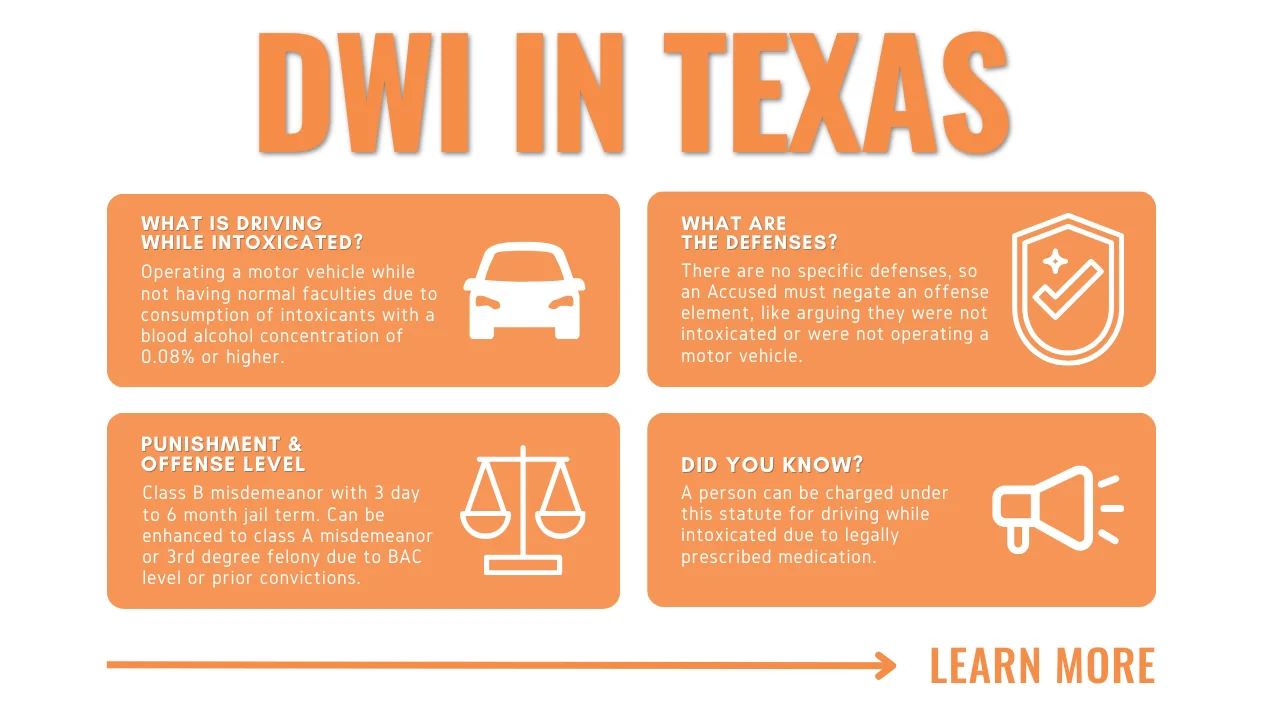
DUI is a serious offense of particular import to military members as they face significant military consequences in addition to the criminal charge. In some circumstances, a DUI can result in the removal of a service member from the United States military. Every military branch has different ways of punishing DUI charges, with possible consequences including demotion, pay deduction, and mandatory alcohol and drug counseling. Learn more.
- What is DUI in the military? DUI in the United States military is Drunken or Reckless Operation of a Vehicle, Aircraft, or Vessel. Learn more.
- What does DUI mean in military? Officially, the Uniform Code of Military Justice (UCMJ) defines DUI as operating or physically controlling a vehicle while under the influence of a controlled substance, or while drunk, or with an illegal BAC (this is determined by the jurisdiction but typically 0.08 or greater):
- Uniform Code of Military Justice Section §913. Art. 113. Drunken or reckless operation of a vehicle, aircraft, or vessel: (a) Any person subject to this chapter who— (1) operates or physically controls any vehicle, aircraft, or vessel in a reckless or wanton manner or while impaired by a substance described in section 912a(b) of this title (article 112a(b)), or (2) operates or is in actual physical control of any vehicle, aircraft, or vessel while drunk or when the alcohol concentration in the person’s blood or breath is equal to or exceeds the applicable limit under subsection (b), shall be punished as a court-martial may direct.
- Can a Soldier who has been charged with DUI be court martialed? Yes, a DUI can result in formal court martial of a service member, though this is more prevalent with offenses occurring on military installations. A commanding officer can alternatively impose Non-judicial Punishment under article 15 of the UCMJ or punishment through Administrative Action:
Non-judicial Punishment can include confinement to quarters, pay deduction, and extra duties.
Administrative Action can include letters of reprimand, suspension of pass privileges, and mandatory substance abuse counseling.
WHAT HAPPENS IF YOU GET A DUI WHILE IN THE MILITARY?
A DUI can result in the dismissal of a service member from the military. However, the UCMJ gives commanding officers great discretion to levy alternative punishment according to the nature of the offense. A commanding officer can impose Non-judicial punishment, which can include confinement to quarters, pay forfeiture, and extra duties. A commanding officer can also take punitive Administrative Action, such as letters of reprimand, mandatory drug and alcohol treatment, and suspension of pass privileges.
- What happens if you get a DUI while in the Army? Army Soldiers who get a DUI are subject to UCMJ discipline that can take different forms depending on the circumstances. A commanding officer can levy Non-judicial Punishment under UCMJ Article 15 or refer the matter for full court martial. An Army DUI is also subject to Administrative Action punishment such as letters of reprimand or alcohol counseling.
- What is an Article 15 in the Military? Article 15 of the UCMJ allows a commanding officer to impose Non-judicial Punishment for minor offenses in lieu of a formal court martial. Under this article, a commanding officer can conduct a general inquiry into the offense, afford the accused a hearing, dismiss the proceedings, impose Non-judicial Punishment, or refer the matter for a full court martial. Colloquially, these proceedings are called “Article 15’s” in the Army and Airforce, “Captain’s Mast” in the Navy and Coast Guard, and simply “Office Hours” in the Marine Corps. Learn more.
HOW DOES THE MILITARY FIND OUT ABOUT A DUI?
The military conducts stringent background investigations on all recruits, including FBI fingerprint checks. Military base officials are also known to conduct regular incarceration checks in surrounding jails with civilian police often freely notifying commanders of arrests. Military police can also see certain criminal records whenever they scan an ID for base access. Learn more.
- Is DUI under UCMJ? Yes, DUI is punishable under the UCMJ as the offense Reckless Operation of a Vehicle, Aircraft, or Vessel. Specifically, the offense prohibits operating or physically controlling a vehicle while under the influence of a controlled substance, or while drunk, or with an illegal BAC (this is determined by the jurisdiction but typically 0.08 or greater).
- What is the punishment for a DUI UCMJ? The law provides that a DUI under the UCMJ “shall be punished as a court-martial may direct.” The punishment takes account of the facts and nature of the offense, any mitigating circumstances, and can result in dismissal from the military in some serious cases. Alternatively, military discipline can proceed through Article 15 where a commanding officer can impose Non-judicial Punishment or Administrative Action, such as pay forfeiture, letters of reprimand, confinement, and substance abuse treatment.
WHAT HAPPENS IF AN ARMY OFFICER GETS A DUI?
The Army holds its officers to high standards, expecting them to model virtuous character for its enlisted members at large. Army officers can therefore expect harsher penalties for DUI offenses under the UCMJ. Learn more.
- What happens if you get drunk in the military? The UCMJ prohibits service members from being drunk on duty or being incapacitated due to drunkenness or drug use. Violation of this provision can result in court martial or Non-judicial Punishment under Article 15, including loss of pay, confinement to quarters, or restriction to specified limits. Administrative Action can also impose letters of reprimand and mandatory alcohol treatment.
- What chapter is a DUI in the army? The military DUI is found in subchapter 10 of the UCMJ along with other punitive articles. The offense is codified in Title 10 USC Sec. 913, Art. 113 as Reckless Operation of a Vehicle, Aircraft, or Vessel. Learn more.
DOES UCMJ STAY ON YOUR RECORD?
Yes, UCMJ does stay on military records. A UCMJ conviction may even appear on a civilian background check depending on the database and diligence employed by the requesting agency. Learn more.
- Is UCMJ a felony? The UCMJ makes no distinction between misdemeanor and felony-level offenses. It prohibits offenses that are normally considered misdemeanors in state courts, like simple assault, just as it does with common state felonies, like murder. Generally, a felony under federal law is any offense with a maximum term of imprisonment of more than one year. Learn more.
- What are minor offenses under the UCMJ? The UCMJ does not contain an itemized list of minor offenses. Instead, this determination is left to the discretion of a commanding officer, who considers the nature of the offense, the circumstances of its commission, the offender’s age, rank, duty, and the maximum possible sentence if tried by court martial. Generally, an offense subject to dishonorable discharge or a greater than one year term of imprisonment would not qualify as a minor offense.
WHAT IS ARTICLE 27 UCMJ?
Article 27 of the UCMJ provides for the assignment of legal counsel, including defense counsel, to serve during court martial proceedings. Legal counsel must meet very specific qualifications under this article and they may not have previously served in the proceedings in any capacity.
- What is an Article 72 in the Military? UCMJ Article 72 provides the authority and procedure for vacating a suspended, or probated, sentence. A service member serving probation on a suspended sentence can have the probation vacated for bad conduct or other offenses under Article 72. The service member is entitled to a hearing and counsel under this article, but could be sentenced to any unexecuted term of confinement if the officer vacates the suspension.
- What is a Chapter 4 discharge from the Army? A Chapter 4 discharge is an administrative discharge allowing an Army member to separate from the army upon completing their service obligation. These provisions are in Army Regulation 635-200 (AR 635-200), Chapter 4, providing for the separation upon expiration of enlistment or fulfillment of service obligation of a Soldier. A Soldier released under this chapter is awarded an honorable character of service.
- What charges disqualify you from the Air Force? The Air Force is generally more strict about criminal records than other military branches and can exclude even those individuals with voluminous traffic citations. Drug dealing or trafficking, domestic violence crimes, and felony offenses will generally disqualify a person from the Air Force. Some criminal offenses, including felonies, may qualify for a waiver for admission on a case-by-case basis. However, waivers are not available for sex offenses.
WHAT HAPPENS IF YOU GET A DUI WHILE IN THE MARINES?
A Marine who gets a DUI is subject to military discipline, including via court martial in some instances. Depending on the circumstances, the case may proceed through Article 15 Non-judicial Punishments or through Administrative Actions. Ultimately, punishment can include confinement, loss of pay, extra duties, and even discharge in some cases.
- Can I join the Air Force with a DWI? A person with a DWI can join the Air Force if they obtain a military waiver. However, the Air Force has particularly stringent standards for admissions and views DWI as a significant red flag as Airmen operate all types of transportation. Waivers are approved on a case-by-case basis by chain of command, making it difficult for a person with a DWI to join the Air Force.
- What is a Chapter 11 discharge from the Army? Chapter 11 discharge is an administrative discharge for entry level performance and conduct. This type of separation is for unsatisfactory performance or conduct, lack of effort, or minor disciplinary infractions during the first 180 days of service only. These provisions are found in Army Regulation 635-200 (AR 635-200), Chapter 11.
WHAT IS THE BAC LIMIT IN THE NAVY?
Pursuant to the UCMJ, the BAC limit for DUI in the Navy is the lesser of the BAC limit for the state where the offense occurred or 0.08. The UCMJ also prohibits a Seaman from being so drunk while on duty that they are incapacitated from performing their duties, but does not specify a required BAC.
- What is the BAC limit for the Army? Pursuant to the UCMJ, the BAC limit for DUI in the Army is the lesser of the BAC limit for the state where the offense occurred or 0.08. The UCMJ also prohibits a Soldier from being so drunk while on duty that they are incapacitated from performing their duties, but does not specify a required BAC.
- What is a Chapter 7 military discharge? A Chapter 7 discharge is an administrative army discharge that allows for the separation of Soldiers who enlisted under defective or potentially fraudulent pretenses, such as minority (underage), or concealment of a criminal background or medical defect. These provisions are found in Army Regulation 635-200 (AR 635-200), Chapter 7 for Defective Enlistments, Reenlistments, and Extensions.
WHAT HAPPENS IF YOU GET A DUI IN THE AIR FORCE?
An Airman who gets a DUI will be subject to stringent Air Force discipline, including letters of reprimand, a demotion, restriction to specified duties, and mandatory alcohol counseling. While a DUI may not necessarily cause the immediate discharge of an Airman, it can severely diminish their prospects for promotion and career advancement.
- Can pilots fly with a DUI? Pilots are often grounded by their employers or the Federal Aviation Administration (FAA) while a DUI case proceeds. A single DUI conviction will not automatically result in a pilot license suspension but it can cause complications for getting the medical clearance needed to maintain the license. This is because the FAA views a high BAC or multiple DUI offenses as concerning for substance abuse issues that can impair pilot judgment and passenger safety. Learn more.
- Can you become a pilot with a DUI? A DUI does not automatically prevent a person from obtaining a pilot license. It can, however, significantly delay the medical clearance necessary as a license prerequisite. A severe DUI offense with a high BAC, or multiple DUI offenses may bar such clearance as signs of a potential substance abuse problem that can interfere with a pilot’s duties.
CAN YOU JOIN THE MILITARY WITH A MISDEMEANOR?
A misdemeanor does not prohibit a person from joining the military but it may create some complications for admission. Certain misdemeanor offenses require military waivers for admission which are ultimately granted on a case-by-case basis.
- How does the military find out about arrests? The military conducts background checks on all candidates for admission. Civilian police often notify base commanders of any service member arrests as well. Military police can also see certain criminal records when checking ID’s for base admission.
- How do you beat a DUI in the military? DUI is a serious offense with significant consequences. The best chance for beating a DUI is with experienced legal counsel, well-versed in DUI investigation. Learn more.
WHAT CRIMES GET YOU KICKED OUT OF THE MILITARY?
A service member can get kicked out of the military for serious felony offenses including murder, human trafficking, treason, and sexual assault. A service member may also be dismissed for serious offenses involving moral turpitude such as domestic violence or some fraud offenses. Additionally, many of these offenses will not qualify for a waiver for military admission.
- What happens if you are in the military and go to jail? Service members who are arrested and go to jail may face military disciplinary proceedings depending on whether charges are filed. Military consequences will ultimately depend on the crimes alleged. The UCMJ gives commanding officers discretion to dole punishment pursuant to Article 15 or to recommend the matter for court martial. Criminal offenses can also result in nonjudicial Administrative Action such as letters of reprimand or corrective training.
- How do I get a military waiver? Applicants seeking military waivers should take care to place their best foot forward and ultimately demonstrate how they are more than just a criminal record. A waiver should include character letters from respectable leaders, a compelling personal statement, court records, and any other documents that can demonstrate a person would be an asset to the military. Waivers are granted on a case-by-case basis and are subject to review by the chain of command.
WHAT HAPPENS IF A CIVILIAN GETS A DUI ON A MILITARY BASE?
A civilian who gets arrested for DUI on a military base is subject to prosecution in federal court. Federal prosecutors are often subject to different policy priorities than their state counterparts and therefore many plea scenarios may not be available for such charges. For example, a civilian DUI on Fort Sam Houston in San Antonio will be prosecuted in the US District Court for the Western District of Texas where Federal prosecutors do not employ pretrial diversion programs that are available in many area state jurisdictions.
TREY PORTER NAMED BEST LAWYER IN DWI DEFENSE
Trey Porter is a dynamic advocate, nationally recognized for his work in DWI Defense. He has been voted by his peers as a best lawyer in the field of Criminal and DWI Defense every year since 2015. Recognized by SuperLawyers, Mr. Porter has also been distinguished as a Top 40 Under 40 Criminal Defense Lawyer by the National Trial Lawyers Association. Mr. Porter holds a Superb rating from AVVO, where attorneys are rated based on skillful litigation, client satisfaction, peer endorsements, and positive results.


















